March 6, 2025 | 11:14 GMT +7
March 6, 2025 | 11:14 GMT +7
Hotline: 0913.378.918
March 6, 2025 | 11:14 GMT +7
Hotline: 0913.378.918
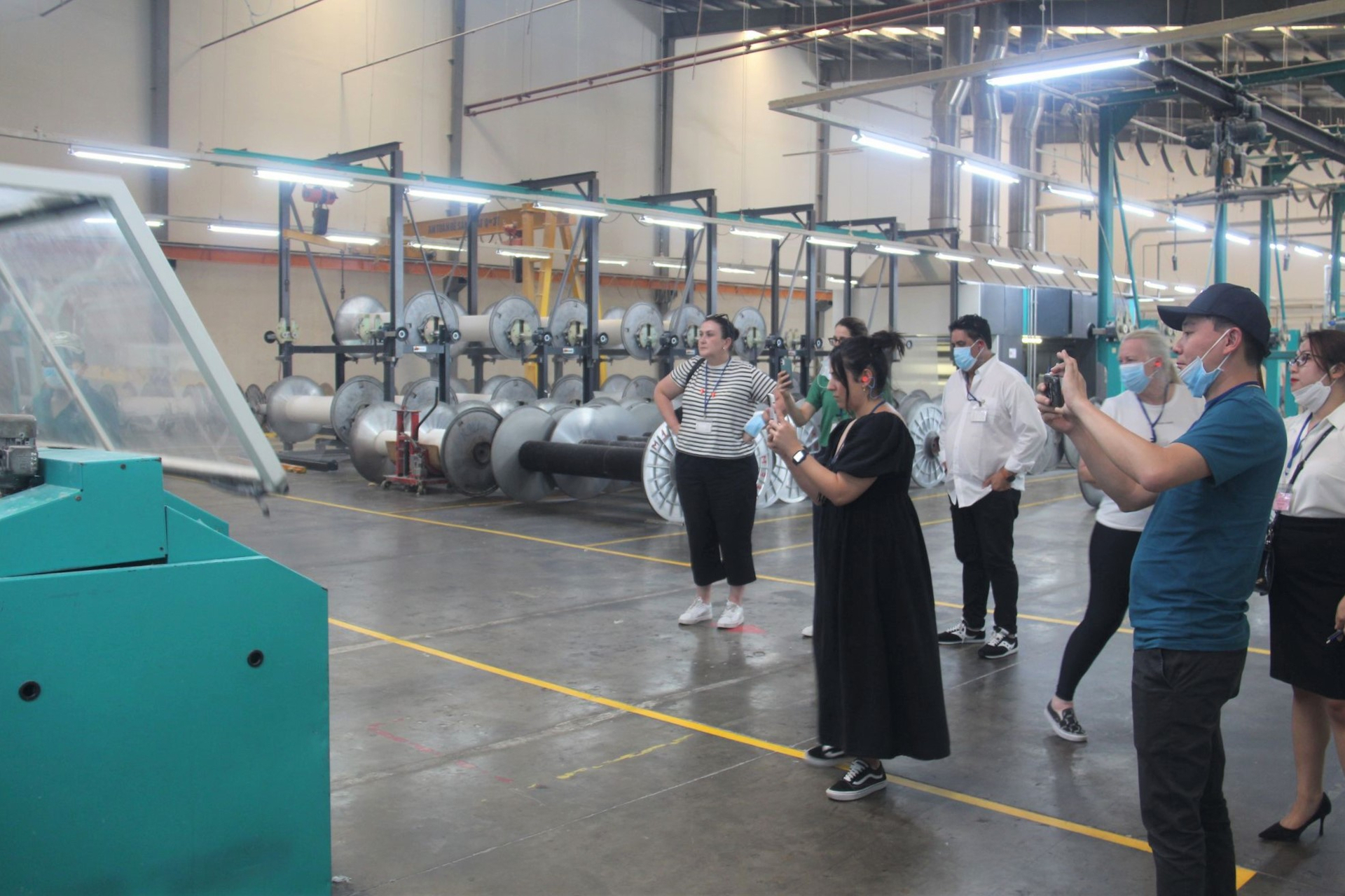
The delegation visited the yarn factory of Vinatex Phu Hung Joint Stock Company.
This is the second visit to Vietnam within 12 months by the Australian cotton industry, highlighting the importance of the Vietnamese market to Australia, especially in the year of the 50th anniversary of establishing diplomatic relations between the two countries.
In 2022, Vietnam is Australia's largest cotton importer, with a 38.8% market share. According to current trends, Vietnam will likely continue to lead the market share in the coming years. From 2020 to 2022, cotton imports from the Australian market into Vietnam increased from A$78 million to A$1.69 billion. Key supply factors such as favorable weather conditions, competitive prices, and proximity are the key advantages that drive Australian cotton exports to Vietnam.
Three FTAs support Australian cotton exports to Vietnam, including the ASEAN-Australia/New Zealand Free Trade Agreement (AANZFTA), the CPTPP Agreement, and the Regional Comprehensive Economic Partnership (RCEP). When it meets the conditions set out in relevant international decrees, Australian raw cotton will enjoy preferential import duties under these agreements.
The week of visiting Vietnam of the Australian cotton business delegation was organized by the Australian Cotton Shippers Association (ACSA) with the support of the Australian Trade and Investment Commission (Austrade), including factory visits and a series of seminars in Ho Chi Minh City, Hue, and Hanoi.
A series of seminars to share information about the Australian cotton industry, updates on the 2023 crop, and the needs of brands, as well as provide a deeper understanding for Australian cotton producers about Vietnamese textile mills.
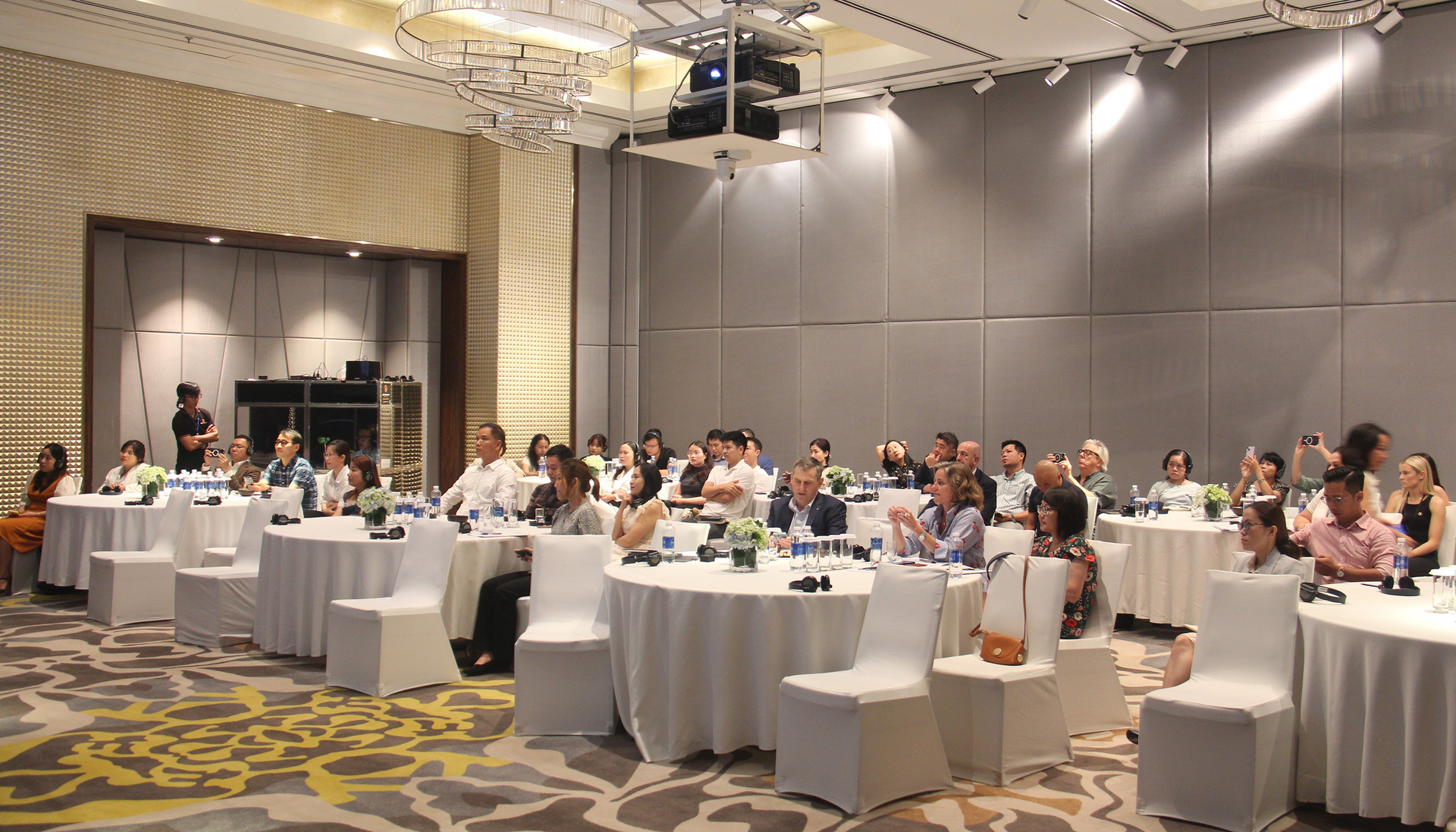
Australian cotton trade delegation including representatives from Sportscraft, Struddys, Big W, AS Colour, Modibodi, Workwear Group, New Romantic, and Michell Wool, met with representatives of Vietnamese textile factories.
Rebecca Ball, Senior Trade and Investment Counselor of the Australian Trade and Investment Commission (Austrade), said at the conference: "We are delighted to welcome back Australian cotton industry representatives to Vietnam with a larger and more diverse delegation this year, including longstanding "icon" brands as well as innovative young brands, brands of workwear, school clothes, with a leading cotton expert from CSIRO.
Australian cotton has a story that we are very proud of, representing modern Australian agriculture - with many sustainable practices, the industry has significantly reduced the amount of pesticides and water needed to produce the best yarn. The week of visiting Vietnam is an opportunity to show gratitude, tighten existing relationships, and build and connect new ones."
Since becoming the first Australian agricultural sector to undertake an environmental impact assessment in 1991, the Australian Cotton industry has been committed to continuously improving sustainability. Australia adopts the PLANET.PEOPLE.PADDOCK sustainability framework, which contributes to the realization of 11 of the 17 Sustainable Development Goals (SDGs) of the United Nations.
From 1992 to the present, industry research data shows many improvements. After efforts to adopt and improve the sustainability framework, Australia has reduced the amount of water by 52%, the number of pesticides by 97%, and the land area by 34% to grow and produce a bale of cotton.
Rob Cairns, ACSA's Export Marketing consultant, shared: "The Australian cotton industry wants to build a deeper relationship with the Vietnamese textile industry to meet the market's growth needs in the coming years.
This visit was the first to include representatives from ACSA, Cotton Australia, brands, and CSIRO researchers to fully convey why Australian cotton is the most suitable fiber for the Vietnamese textile industry".
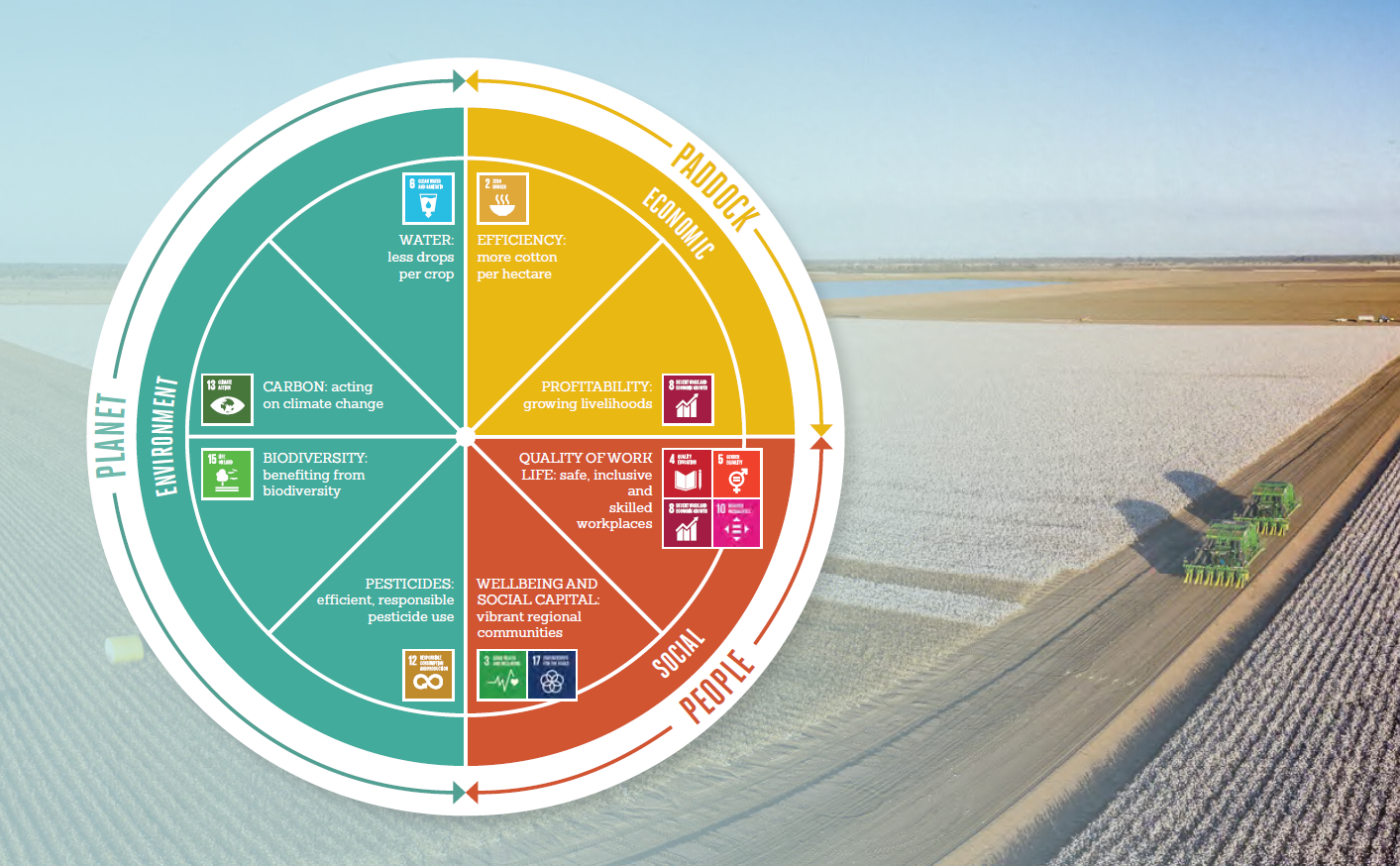
The Australian Cotton industry has been committed to continuously improving sustainability. Australia adopts the PLANET.PEOPLE.PADDOCK sustainability framework, which contributes to the realization of 11 of the 17 Sustainable Development Goals (SDGs) of the United Nations.
Meanwhile, Ashley Hollis, Brand Relations Manager of Cotton Australia, shared: "Through this visit, we heard from Vietnamese textile factory representatives about their love for quality, color, and strength of Australian cotton.
In addition, the participation of Australian brands has opened valuable discussions and information sharing about Australian cotton to Vietnam, especially about product traceability, quality, and social and environmental impact. These are the reasons for the growth in Vietnam's demand to import and use Australian cotton."
The Australian cotton trade delegation included representatives from Sportscraft, Struddys, Big W, AS Colour, Modibodi, Workwear Group, New Romantic, and Michell Wool.
Translated by Ha Phuc
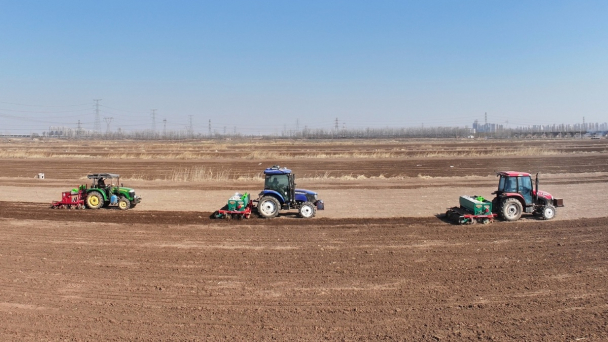
(VAN) Guidelines detail key importance of innovation in developing farming.
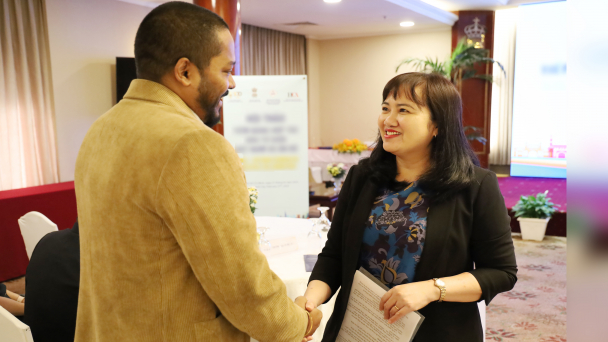
(VAN) Ho Chi Minh City has around 400.000 businesses and is calling for Indian companies to cooperate and invest in projects related to high technology, the environment, waste management and urban development...
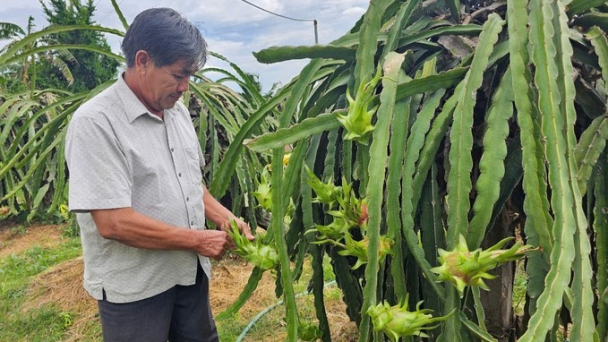
(VAN) Binh Thuan province's industry and trade sector continues to support dragon fruit processing and exporting businesses to promote, seek partners, and expand export markets.
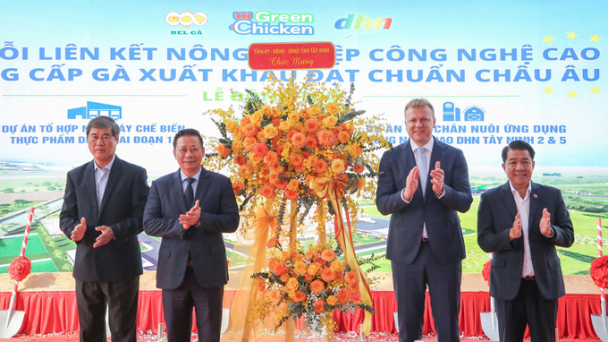
(VAN) De Heus and Hung Nhon have commenced construction on the DHP Food Processing Factory Complex and two DHN Tay Ninh High-Tech Livestock Area projects.

(VAN) Giong Rieng District (Kien Giang) has pioneered the application of 3D virtual reality technology to promote agriculture and connect markets on their website: 3dnongnghiepgiongrieng.vnasw.vn.
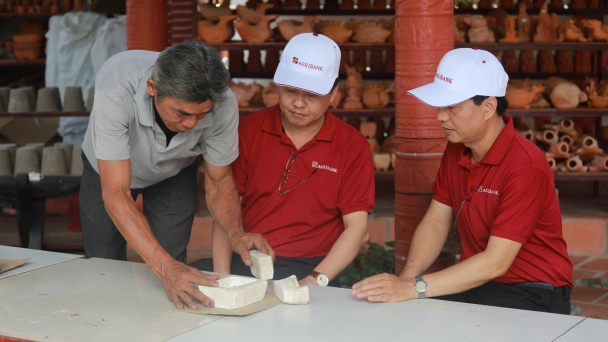
(VAN) Tu Buoi Pottery Village is a creative hub to preserve the essence of traditional craft, driving force for the development of Vinh Long Red Pottery on the tourism and trade map.
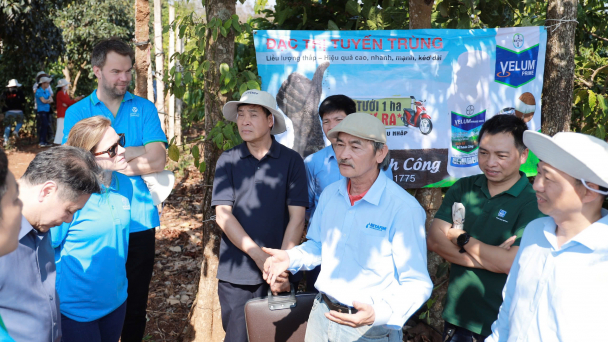
(VAN) Bayer has expanded sustainable agricultural development models in the Mekong Delta and Central Highlands, where two key plantation development initiatives have been enthusiastically received.